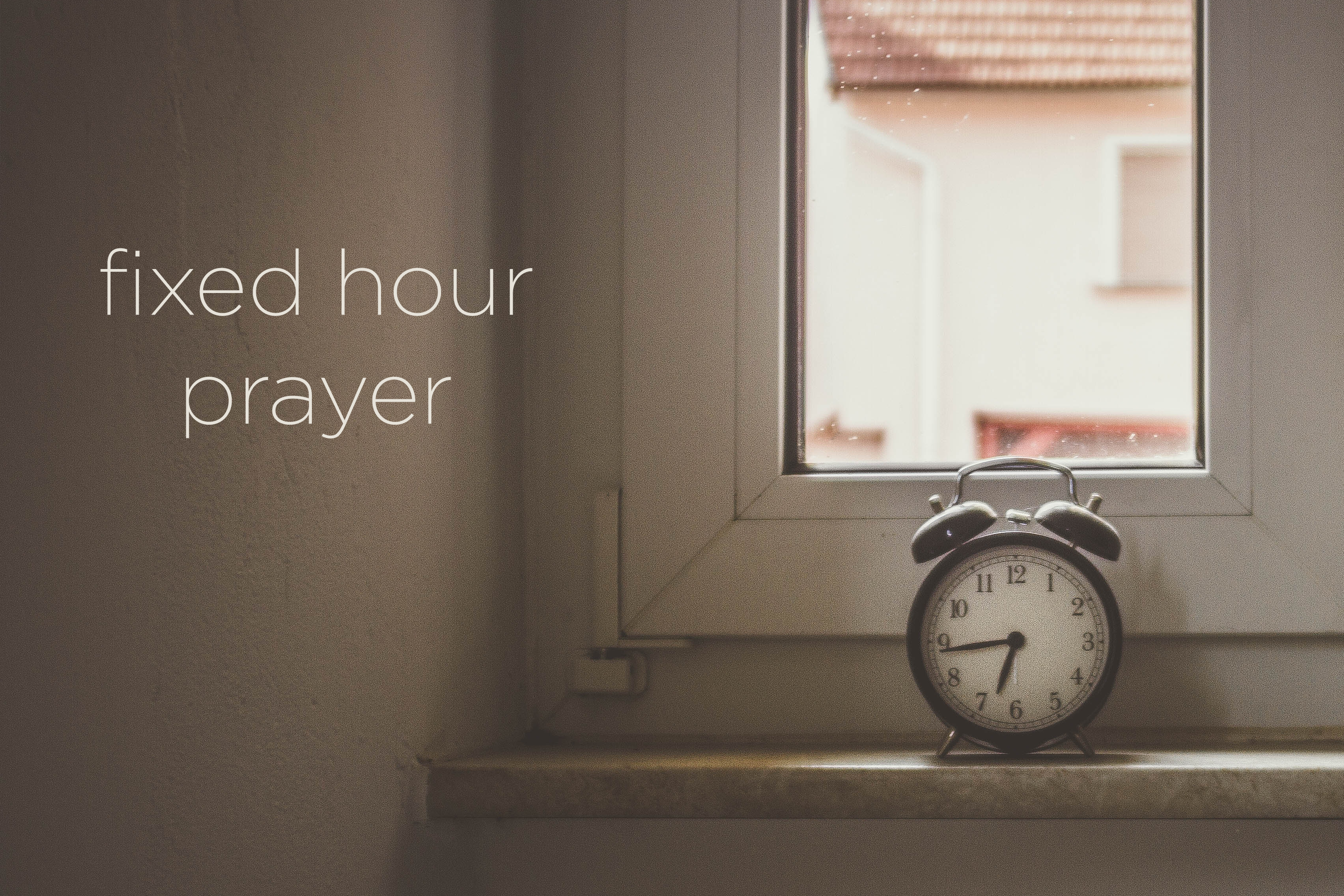Throughout the Bible, many of God’s people prayed at specific times of day. In Psalm 119:164, the psalmist says “Seven times a day I praise you for your righteous ordinances.” In the book of Daniel, in spite of King Darius’ decree, Daniel went to his house and prayed three times a day, “just as he had done previously” (Daniel 6:10). In Acts 3:1, Peter and John go to the temple at the “hour of prayer.” This Jewish practice of praying at set times throughout the day was adopted by Christians in the early church. Over time, fixed-hour prayer became most common in the Orthodox and Roman Catholic traditions, and especially in monastic communities, who ordered their entire day around a liturgical life rhythm.
Today, the most common of these traditions comes from the Benedictine order in the Liturgy of the Hours:
- Vigils (Night)
- Lauds (Dawn)
- Prime (Early Morning)
- Terce (Mid-Morning)
- Sext (Midday)
- None (Mid-Afternoon)
- Vespers (Evening Prayer)
- Compline (Night, before sleeping)
For many of us- who aren’t Benedictine monks, for starters! - praying this many times a day seems extremely daunting. But, let’s first consider the principles at the heart of fixed-hour prayer. What does it teach us?
I think it can do several things:
- Reminds us that our time belongs to God
- Reconnects us with spiritual awareness throughout our day
- Gives us a practical, structured way to practice praying “without ceasing”
With these benefits in mind, a good way to begin practicing this discipline is to simply add one intentional time of prayer to your day at a time. If, for example, you already spend time in prayer in the morning, try adding an evening prayer to your routine, or make it part of your lunch break. Whatever part of your day could most benefit from an intentional refocusing on God, start there.
These times of prayer don’t have to be long or complicated, just something you pause to do consistently. Fixed hour prayers can be spontaneous, or they can follow traditional liturgy, which involve selected readings from the Psalms, other scriptures, hymns, and pre-written prayers that follow the church calendar. I grew up in a church that didn’t really “do” prayers that someone else wrote. Speaking casually and spontaneously to God is important - but sometimes we can benefit from getting outside the limits of our own vocabulary and perspective on life. If you are interested in exploring the Liturgy of the Hours, a great resource to use is Phyllis Tickle’s The Divine Hours. It is available as a three-volume book that takes you through one full year. If you prefer to read on your phone, a simplified version also been made available online in a format that is updated 3 times a day with the current prayers.



